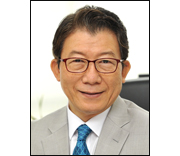-
[November 3, 2015 Korea times] Ordinary wage puzzle
- Date : 2016.03.10
- Views : 569
Ordinary wage puzzle
 |
By Jeffrey I. Kim
OnDec. 13, 2013, the Supreme Court provided clear criteria for ordinary wages.The Court's ruling states that bonuses, allowances, and other welfare benefitsshould be paid on a regular, uniform, and fixed basis if they are to beincluded as part of ordinary wages. However, claiming retroactive payments inrelation to fixed regular bonuses is not allowed on the ground of thegood-faith principle." The good-faith principle states that partiessubject to a contract will deal with each other honestly and fairly so as notto destroy the right of the other party in order to receive the benefits of thecontract.
Despite the Supreme Court's ruling, there exist many cases in which workers andemployers dispute whether some allowances should be included in or excludedfrom ordinary wages. Currently about 15,600 foreign-invested companies areoperating their businesses in Korea. They are concerned that Korea's ordinarywage structure is extremely complicated. They are afraid that the decisions ofthe district courts will be different from the Supreme Court ruling due to theexistence of grey areas in the interpretation of relevant laws and decrees.
However, the understanding of the history of Korean business and background ofbusiness leaders in Korea will help the foreign investors a lot in dealing withthe issues of Korea's new ordinary wage system. So far as allowance paymentsare concerned, the US also has a good variety of allowances includingconveyance allowance, house rent allowance, cost of living allowance, foreignallowance, dearness allowance which is paid on the basis of rising prices oftheir products.
The Korean wage system can be better understood as an evolutionary system,constantly improving in a similar way to how evolution works in nature. Modernbusiness in Korea started during the early 1960s and continued to grow untilthe Asian financial crisis in 1997. During this 40 year period, the Koreaneconomy expanded tremendously. The average annual GDP growth rate was close to8 percent. The number of companies, both small and large, greatly increased.Young and disciplined employees worked longer hours. They did not mind workingeven on weekends or holidays.
A great number of business owners made huge profits and they created so manyallowances and bonuses such as shift allowances, commuting allowances, familyallowances, physical training allowances, even a kimchi-making bonus. Theemployer gave allowances to his employees for two reasons:(1) He had compassionfor his employees and (2) he desired to increase the worker's productivity. Theordinary wages are used as the basis for calculating statutory payments such asovertime payment.
In the aftermath of the Asian financial crisis, however, the labor marketsituation has changed a lot. The income inequality gap has substantiallywidened and social sentiment of labor protection began to prevail. Slowereconomic growth made the employer's generosity towards workers weaker.Consequently labor market flexibility lessened to a great extent.
After the 2008 global financial crisis, the situation became even worse. Alongwith the trend of global economic stagnation, Korea has lost its growth enginesand is suffering from a very low growth and serious unemployment. Bothemployers and workers are in difficulty. To escape unfavorable conditions inthe domestic economy, a good number of companies went abroad where labor costsare low. Moreover, employers have to fight uncertainties in the domestic marketas well as in the global economy. As profits fluctuate wildly, they must have acontingency plan for rainy days.
Despite the provision of the clear criteria for ordinary wages by the SupremeCourt, there are many cases where the employer and the workers disagree on thescope of the ordinary wages. It is partly because there is a grey area in theinterpretation of bonus. For some companies, part of the bonus can be interpretedas non-regular or non-uniform nature and it is not included in the scope ofordinary wages. But for other companies, it is included.
To overcome the difficulties of this kind, the Supreme Court advises that bothparties should honor the good-faith principle. This means that the employer andworkers should try to resolve their disputes on the interpretation of ordinarywages amicably through dialogue in good faith. Above all, the successfulapplication of the good-faith principle is based on mutual trust betweenemployers and workers.
Jeffrey I. Kim is the foreign investment ombudsman, a presidentiallyappointed troubleshooter for investors and entrepreneurs from overseas. Heearned his Ph.D. in economics at the University of Chicago and taught at the Universityof Colorado, Boulder, and Sungkyunkwan University.
Link : http://www.koreatimes.co.kr/www/news/nation/2015/11/197_190034.html










